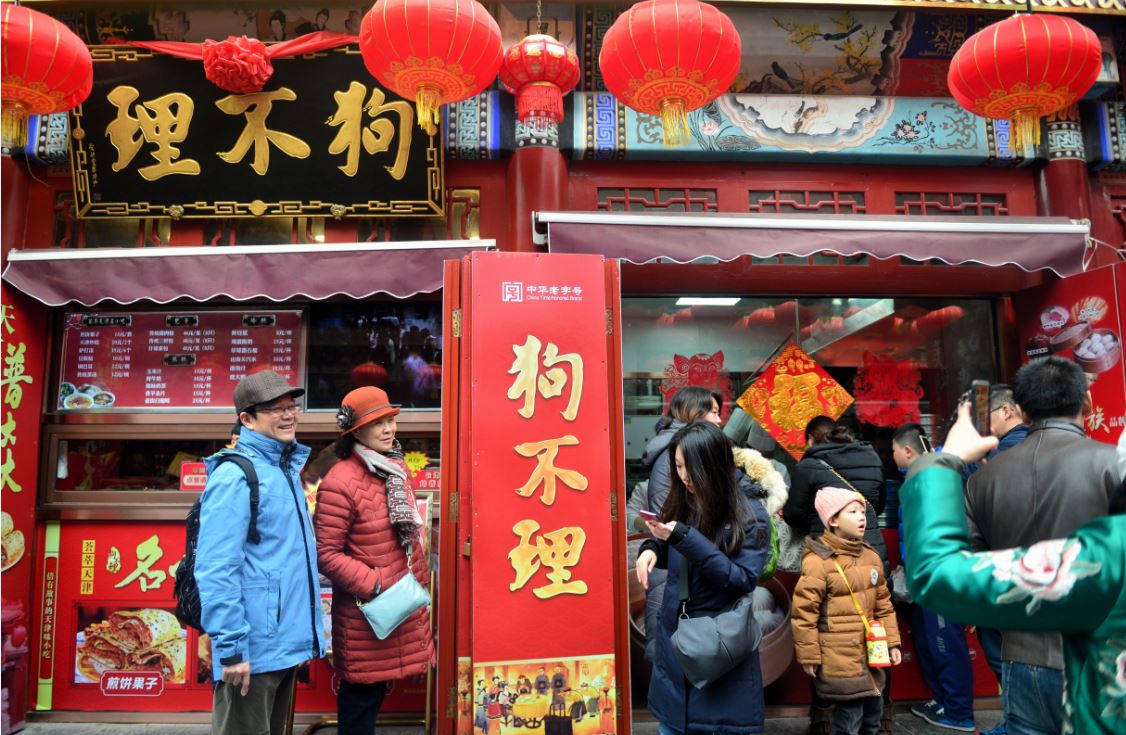Tianjin Goubuli set to open Australian probiotics plant


Company looks to cash in on emerging opportunities from Belt and Road in overseas markets
Tianjin Goubuli Group Corp, a century-old company better known for its uniquely flavored baozi or steamed buns, will put up a probiotics plant in Australia on May 13, after officially acquiring the majority stake from an Aussie bioscience company last month, said its top executive.
Zhang Yansen, the group's chairman, said construction work of the project's first phase had been completed and it will be operational in Gold Coast City, Queensland, next week. The factory can produce up to 35 metric tons worth 500 million yuan ($74.3 million) of concentrated probiotics such as lactobacillus acidophilus annually.
Probiotics are live microorganisms - including yeast, bacteria and fungi - which can generate health benefits for human bodies. Global research works indicate they can improve digestion and help strengthen immune function.
"The probiotics we produce in our plant will also be used in Goubuli's food products to meet customers' demand for food nutrition and consumption upgrading," he said, adding food consumption is a reflection of China's economic success.
"Food consumption is rising. The types of foods people eat are diversifying. Foods are becoming more sophisticated and they need to be more convenient, tasty and nutritious."
Goubuli began to acquire the Ormeau-based Probiotics Australia Pty Ltd in 2018. Probiotics Australia - its new international arm, is the first probiotic manufacturer in Australia with the capability to manufacture, conduct research and development, and provide services to its customers in the area of probiotics.
Future plans include adopting low-temperature spray drying technology for probiotic powder manufacturing and expanding production capacity to 200 tons in the second phase of this project.
Many opportunities come from tangible development of the Belt and Road Initiative. It has not only pushed home companies to grow businesses in other parts of the world, but also created chances for domestic firms to seek high-end resources in the areas of food production and healthcare abroad to enrich their earning ability, said Zhang.
This is not Goubuli's first business in Australia. The company signed a cooperation agreement with Australian health product company Blooms Bluesky Holding in 2017, acquiring the latter's 78 percent stake.
It also joined with the coffee shop franchise Gloria Jean's Coffees in 2014, and now runs more than 100 Gloria Jean's coffee shops and Goubuli restaurants in China.
"Because more products come off factory assembly lines and customers have growing appetites for new tastes, Goubuli's development path has shown other time-honored brands a way to diversify their businesses and upgrade their products with the latest market trend," said Zhao Ying, a researcher at the Institute of Industrial Economics of the Chinese Academy of Social Sciences in Beijing.
He said China's expanding middle-income group has created a lucrative market for high quality products, traditional brands representing excellent craftsmanship or Chinese characteristics certainly can win consumers via methods such as innovation, 'going global', mergers and acquisition, business mode switch and forming new partnership with companies in other sectors.



































